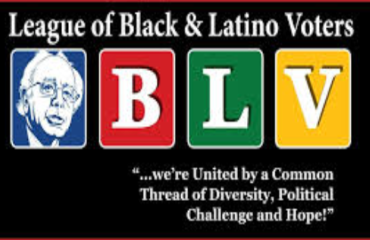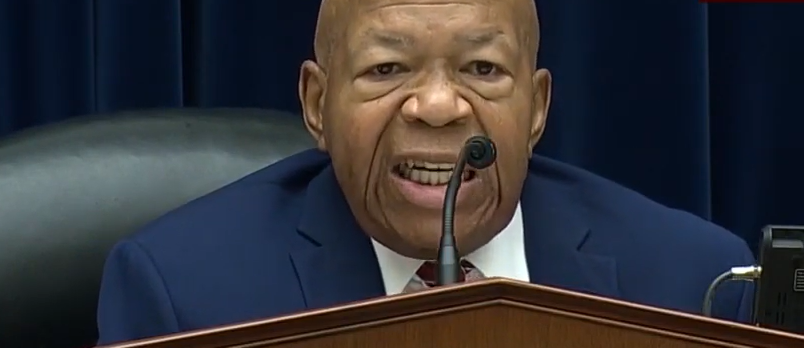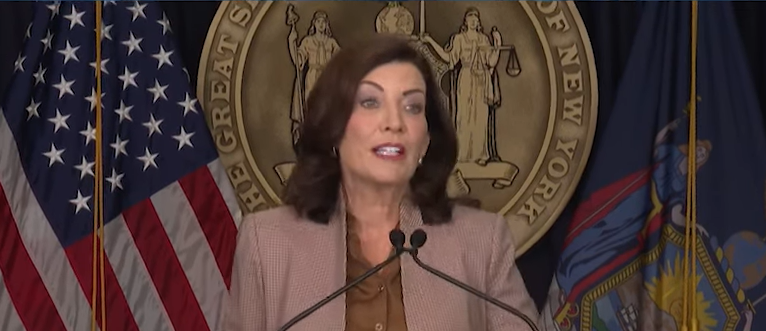[Black & Latino Voters]
The announcement of Sen. Kamala Harris as running mate produced a massive uptick in support for the Democratic ticket, a boost of 11 points for African-Americans and 15 points for Latinos.
Photo: YouTube
African-American and Latino voters in battleground states expressed a surge of support for the Democratic presidential ticket following the announcement of Senator Kamala Harris as presidential nominee Joe Biden’s running mate, according to new polling released by the nonpartisan and nonprofit Voter Participation Center (VPC), and its partner organization the Center for Voter Information (CVI).
As their communities are continuing to be severely and disproportionately impacted by the pandemic, African-American and Latino voters said they have a lack of information on voting by mail and whether or not it is a trustworthy method of casting a ballot. Because this poll was in the field from August 8 to August 14, and Vice President Biden named Senator Harris as his running mate on August 11, it is possible to assess the impact of this announcement on support for Biden’s candidacy by examining the level of support for Biden before and after the announcement.
The announcement of Sen. Kamala Harris as running mate produced a massive uptick in support for the Democratic ticket, a boost of 11 points for African-Americans and 15 points for Latinos.
Both African-American and Latino voters are split 50/50 on whether they plan to vote by mail or in person, but the surveys show overwhelming agreement that they should have the option and information to vote by mail if they choose to do so. African-Americans voters said they do not have enough knowledge on how to vote by mail and would like more information. Over one-third of African-Americans acknowledge that they do not have sufficient information from their state to know how to vote by mail. When framed as a choice, Black voters overwhelmingly support the idea that no one should “deny me the right to vote by mail if I so choose” (90%) and would like to be sent information on vote by mail so they can make that choice (87%).
Seventy-one percent of African-American respondents felt voting in person was important because it makes a statement about “our right to vote” following the historic denial of the vote to Black people. Respondents had higher distrust for election officials in Texas, Georgia, and North Carolina, three states with both historic disenfranchisement of Black citizens and quite recent public attacks on the Black vote.
Latino voters are concerned about the safety and reliability of voting by mail given the realities of COVID-19. Many said they want to know more about voting by mail, but currently do not fully trust the process. Despite some skepticism, an overwhelming majority of Latinos believe that people should be able to decide whether or not they would like to vote by mail. Latinos remain concerned about possibly contracting coronavirus if they vote in person. A VPC/CVI/Voto Latino poll in July also found that Latino voters expressed low levels of information on voting by mail.
The polling — produced for VPC/CVI by Latino Decisions and the African American Research Collaborative — offers a detailed analysis of critical voting blocs that will help decide the outcome of the 2020 presidential election, and how they plan to vote this year. Toplines include:
Support for Democratic Ticket
Latino voters
- There is a noticeable bump in support for the Democratic ticket among Latinos, going from +33 Biden to +48 Biden, following the Harris announcement.
African-American voters
Support for Biden over Trump following the Harris announcement grew by 11 points, going from +68 to +79. Those under 40 say her selection makes them somewhat or much more likely to vote (82%).
Requesting Vote by Mail
Latino voters
- There is limited knowledge on how vote-by-mail works, and 82% of respondents would like to receive clear instructions explaining how to sign up for and vote by mail.
- Only 60% of respondents have received adequate information on how to request vote-by-mail ballots. In Texas, which has very restrictive vote-by-mail, 57% of Latinos wrongly believe that anyone in Texas can request and receive an absentee ballot. African-American voters 64% of respondents say they know how to request a ballot by mail. 49% of Black Texans inaccurately think everyone can request a ballot. Texas law has restrictions. Thus, it is unlikely that people in most states really know the process at the levels they self-indicate.
- 87% would like information on how to vote by mail so they can make the choice for themselves.
Trust in Vote by Mail
Latino voters
- Latinos are mixed on trust and confidence. While 35% are very confident in vote-by-mail, 30% are not confident and 36% somewhat.
- 30% are concerned about signature matching requirements; and 37% do not trust the US Postal Service will deliver their ballot back to the county elections department.
- 65% of Latino voters agree that they prefer to vote in person because they believe their vote is more likely to be counted than if they vote by mail.
- A majority of Latinos (55%) state that they do not trust election officials in their state to count their ballot if they vote by mail.
African-American voters
- 36% completely trust that the correct ballot will be mailed to their current address, while 10% do not trust at all that their ballot will be correctly mailed.
- 57% do not trust election officials in their state to fairly count their ballot if they vote by mail. This is highest in Georgia (65%) followed by North Carolina (61%).
- 66% agree that they prefer to vote in person because they believe their vote is more likely to be counted than if they vote by mail.
- Closest to your view: “voting by mail counts the same as in person, it’s accurate and convenient” (60%) versus “mail ballots don’t get counted accurately and are subject to cheating” (40%) but this is due to high VBM support by people ages 60+ (75%). For younger voters 18-29 the pro-mail ballots response is even at 50% and for 30-39 and 40-59, the pro-mail ballot response garners 55%.
COVID-19 and Vote by Mail
Latino voters
- 76% of Latinos are concerned that they might be exposed to COVID-19 by voting in person. Concern is greatest among Latinos in Florida and Texas – two states with high case numbers.
- A majority of Latinos say they would leave their polling location if people are not wearing masks and anyone appears sick.
- 70% of Latinos agree that voting by mail is safer because of COVID-19. This is highest in Arizona with 80% agreeing.
African-American voters
- 34% are very concerned their polling place will have COVID-19, while 30% are somewhat concerned.
- 74% prefer to vote by mail because with COVID-19 they will be safer voting by mail.
- 78% concerned that they might be exposed to COVID-19 if voting in person with 38% very concerned. Concern is greatest in Georgia and Pennsylvania.
“African-American and Latino voters’ fear and lack of information around voting by mail is extremely concerning with less than three months to go until the November election. There is no time to waste in ensuring historically disenfranchised eligible voters have the tools they need to safely cast their ballots,” said Page Gardner, founder and board chair VPC and CVI. “Voting by mail is safe, secure and effective, but it is clear more information must be provided to voters. We are continuing to be aggressive in our efforts to empower African American and Latino voters with voter registration and absentee ballot applications sent straight to their door, as well as resources available online, and making information easy for them to share with friends and family. We support states offering safe in-person options, but with mail-based voting being more needed than ever, we cannot risk a single voter missing out on their right to participate in democracy.”
“Vice President Biden did himself a great service by naming Senator Kamala Harris as his running mate. This increased his support from African-Americans by 11 points, an amazing number for a vice presidential choice. To grow this support even further, they will need to build support among younger Black voters, who cite as primary issue concerns racism, COVID-19, criminal justice reforms, and the economy. They will also need to fight to ensure that there is broad access to the ballot and everyone who chooses to vote by mail can do so,” said Henry Fernandez, CEO of African American Research Collaborative.
“This data makes clear that Latino voters are committed to voting this November, but much more information is needed on vote-by-mail which varies dramatically from state to state. We need to invest in outreach to dispel the myths that are being spread to make sure all voters have the choice to vote in-person or by mail,” said Albert Morales, Senior Political Director at Latino Decisions. “This poll is the first to demonstrate that Senator Harris has the potential to deliver a boost to the Biden campaign with Latinos. We were in the field right at the moment Harris was announced as the VP nominee and we saw an immediate increase in Latino support for Biden following the Harris announcement.”
Latino Decisions implemented a battleground state poll of 1,552 Latinos in Arizona Florida, Colorado, North Carolina, Pennsylvania, and Texas. The poll ran from August 8-14 of 2020. Respondents are comprised mainly of registered voters (85%) with some eligible to vote, but not yet registered (15%). Overall margin of error is +/- 2.5 and 6.4 in each state. The African American Research Collaborative implemented a battleground state poll of 1,310 African Americans in Florida, Georgia, Michigan, North Carolina, Pennsylvania, and Texas. The blended phone and online poll ran from August 8 to 14. Respondents are comprised mainly of registered voters (85%) with some eligible to vote, but not yet registered (15%). The margin of error for the full sample is +/-2.7 and for each state is +/-6.6.
The Voter Participation Center (VPC) and Center for Voter Information (CVI) are non-profit and non-partisan civic engagement organizations dedicated to providing voters with the impartial information they need to make an informed decision and cast their ballot. Their focus is the Rising American Electorate—the people of color, young people and unmarried women who together represent 64% of the people who can vote in America. Together, VPC and CVI helped more than 5 million voters register and get to the polls in the group’s history, and run the nation’s largest mail-based voter registration and turnout programs.







